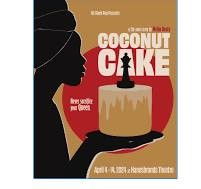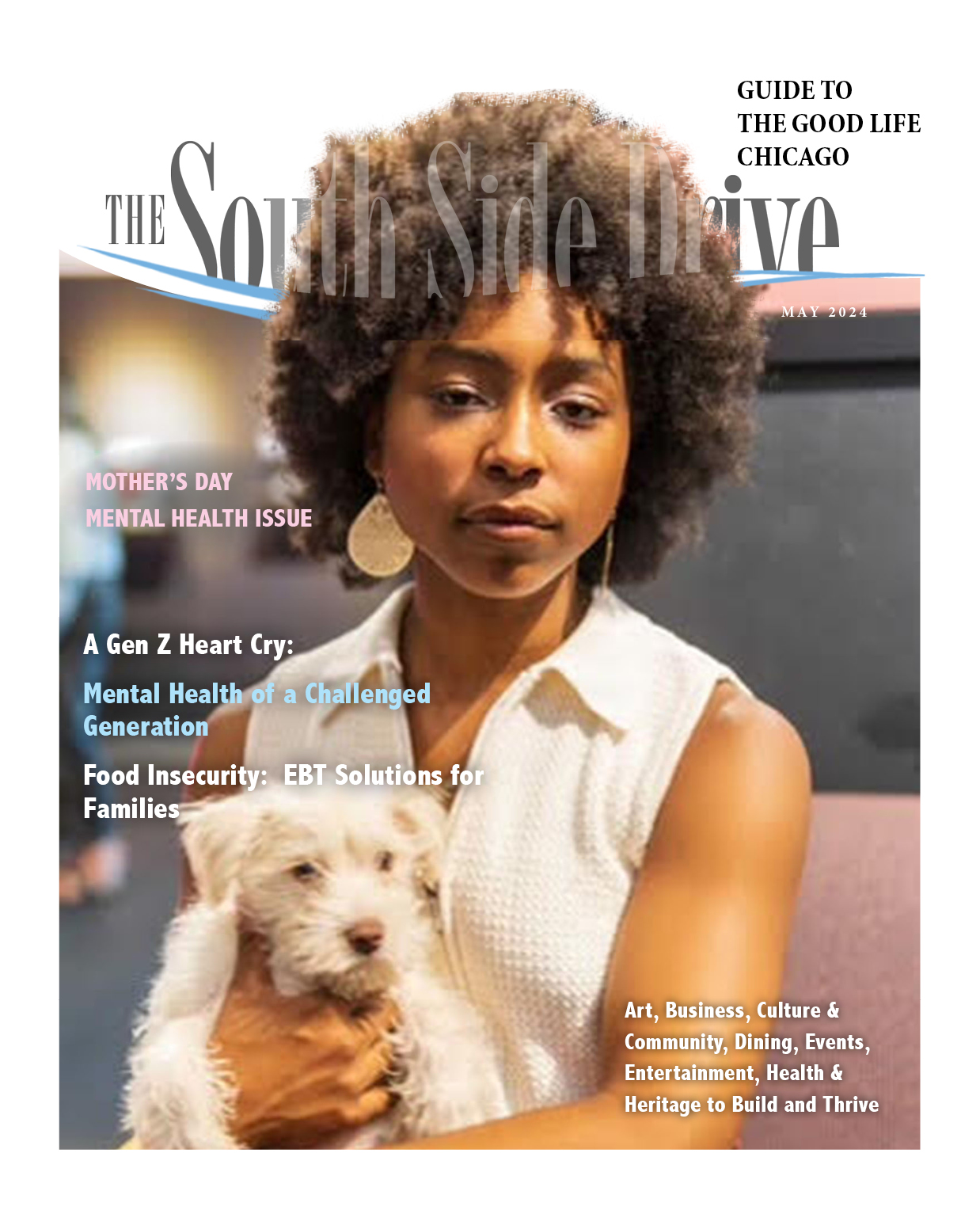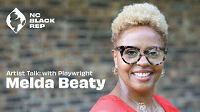South Side-based playwright, Melda Beaty, brings African American culture to the stage.
After being welcomed by the men as a silent observer, she sat and listened. While writing whatever the age-rich brothers said that attracted her attention, they expressed themselves as if she were not there.
Her stated purpose? To create a play where their words would be the basis for its plot and her imagination.
These meetings, which happened at various McDonald’s locations on West 95th Street in 2017, were taken in by southside native Melda Beaty. The men’s voices are now presented in Coconut Cake, a play that earned her a National Playwrighting Award in 2022. Coconut Cake received its world premiere on April 4, 2024, at the Hanesbrands Theater in Winston-Salem, North Carolina.

According to NYC Playwrights, an organization whose website lists competitions for original scripts, “The award was created to assist in Black Theater’s working together to discover and nurture the next generation of great African American playwrights. The award is named in honor of National Black Theater Festival Executive Producer Emeritus, Sylvia Sprinkle-Hamlin, former Board President of NC Black (Repertory Company.)”
Beyond this world premiere, the award also means that Coconut Cake will be staged later this year in Memphis, Houston, St. Louis, and Sarasota, Florida. Chuck Smith, Goodman Theater’s resident director, will oversee the performances in Sarasota.
Coconut Cake features four black characters, Eddie, Marty, Joe—played at the premiere by Nathan Purdee, best known for his roles in The Young and the Restless and One Life to Live—and Gotdamnit. According to Beaty, lots can be learned from these men, who have complicated lives.
“There’s a stereotype that men aren’t expressive, that they don’t talk and get their feelings out. But amongst each other, they do,” she said during a recent conversation. “This play gives the audience a chance to eavesdrop in on their safe spaces, to find out what makes them laugh, what makes them sad, what makes them glad, and what makes them curious.”
A fifth character, a white brother named Hank, is also included. “He adds another layer to the complexity of the older men and their issues, and he is accepted by most of them,” Beaty said. “His connection to the group is also revealed.”
The catalyst for Coconut Cake came from a comment made by Beaty’s grandmother.
During a family discussion, her mother asked Beaty’s grandfather, who had just retired from a steel mill, what he would do next. Before he could answer, the grandmother replied, “Oh, he’ll just go up to McDonald’s and lie.” This comment led Beaty to envision an all-male gathering where coffee and conversation produced a natural camaraderie.

Beaty’s respect for the late playwright August Wilson’s The Piano Lesson also influenced her play. She recalled one particular scene where the male characters discussed learning life’s lessons in the deep-fried South. Through her imagination and memory, the characters in Coconut Cake honestly discuss their health, marriages, and ambitions, even the ones not realized, “and what happens in the end with that,” she said.
The play’s title, Beaty continued, is a metaphor for some “sweet and tempting” events that the men encounter. “It excites them and rebuilds some depth of their issues in life. It is the one thing tied to a mystery woman who does not appear,” she said. “How the men respond to this mystery woman who comes to town is telling.”
While watching the fellas one day at the Mickey D’s on Halsted, Beaty noted something interesting during a chess match. Joining her as spectators were numerous younger brothers who were just as curious and captivated.
“And that put a different spin on the play,” she said. “What I had originally thought was just going to be a conversation morphed into something more that included chess. It’s analogous to their lives as the play goes on.”
Gotdamnit, a mentally ill character, is based off one different-type-dude tolerated in real life by the crew. “If he interjected into a conversation, they might cut him off or dismiss him, not all the men, just a couple,” Beaty recalled. “Honestly, a lot of times I heard him talk, he made a lot of sense.”
Whenever a topic’s intensity went TILT! the men’s language would rub raw, and they would apologize to Beaty. “But I didn’t want them to apologize. I was just a fly on the wall. I just wish this play had come out sooner so that I could have showed it to them,” she said, as her contact with the men no longer exists.
While Coconut Cake is focused on the men’s stories, Beaty noted, there is something also to be said about its scenery. “You are not going to just watch them sit and talk,” she said. “There are some happenings not just in the space at McDonald’s but outside. There is an imagined window that the men look out of when a woman passes by. They look out of it for the purpose of furthering the play.”
Post-Premiere Praise…
Lynn Felder, a critic for the Cultural Voice of North Carolina, attended the premiere of Coconut Cake. She concluded her review by stating.” (The) audiences (that see this play) are in for a treat that will satisfy their hunger for sweet comedy as well as any longing they may have for deeper meaning, human kindness, and connection in an uncertain world.”
In sharing her experiences with her Facebook friends about seeing her creation on the stage in real time, Beaty wrote: “North Carolina Black Rep and Winston- Salem owe me nothing! The love and support for my play ran deep. It was even better to see friends, fellow playwrights, Sorors, and others in the audience.
Westcoast Black Theatre Troupe in Sarasota, Florida, (is our) next stop in June!”






